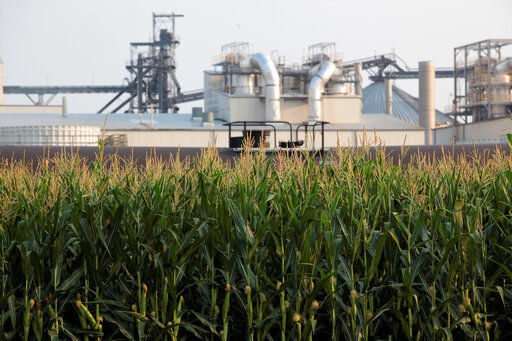BISMARCK, N.D. — North Dakota’s biggest oil driller said today it will commit $250 million to help fund a proposed pipeline that would gather carbon dioxide produced by ethanol plants across the Midwest and pump it thousands of feet underground for permanent storage.
Continental Resources, headed by billionaire oil tycoon Harold Hamm, planned to discuss the investment into Summit Carbon Solutions’ $4.5 billion pipeline at an ethanol plant in Casselton, in eastern North Dakota. The plant is one of 31 ethanol facilities across Iowa, Minnesota, Nebraska and the Dakotas, where emissions would be captured and piped to western North Dakota and buried deep underground.
The pipeline system would extend 2,000 miles and could move up to 12 million metric tons of carbon dioxide a year, said Wade Boeshans, executive vice president of the Iowa-based pipeline developer. That’s equal to removing the annual carbon emissions of 2.6 million cars, he said.
Boeshans said the involvement of Hamm likely will help raise capital and boost the project’s profile. Hamm’s company helped lead a renaissance in the U.S. oil industry through the use of horizontal drilling to free oil trapped in shale rock. Continental is the biggest producer and largest leaseholder in the Bakken shale formation, with more than 1 million acres (404,686 hectares) in North Dakota and Montana.
North Dakota is the nation’s No. 3 oil producer behind Texas and New Mexico.
Continental and Summit officials said there are no plans to inject carbon dioxide into old oil wells to boost production, a process that has been largely unsuccessful in North Dakota.
“That is not part of our business plan,” Boeshans said.
North Dakota’s underground rock formations are ideal for carbon storage, state Geologist Ed Murphy said.
Republican North Dakota Gov. Doug Burgum praised the Summit pipeline and other proposed carbon storage projects in North Dakota, which are integral as part of the state’s plan to become carbon neutral by 2030.
Boeshans said the company in December began negotiating with landowners along the pipeline’s path for easements, though the company would not rule out the use eminent domain if agreements with landowners can’t be reached voluntarily.
“Overall, we’re making progress with voluntary easements,” he said.
The company has not filed permit applications in North Dakota for the pipeline, or for the estimated dozen underground wells needed for storage. The project could employ up to 17,000 people during construction, and lead to 500 permanent jobs when it’s expected to come online in mid-2024, Boeshans said.


